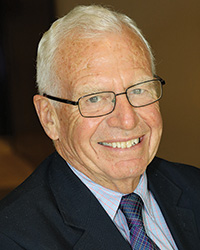
Climate change and compliance - David Kirk

Net Zero Emissions zoning and building codes are proposed in (several) major metropolitan jurisdictions. The implications for infrastructure, the grid and power production, are calculable if not complete. The public private partnership (PPP) for climate change is being expanded, codified and funded. Collaboration is essential and cost effective. Redundancy and resilience are components of the solutions.
Boston has scheduled hearings for its net-zero emissions zoning provisions. The Boston Planning and Development Agency (BPDA) has started the public comment period which is scheduled to extend to October 28, 2022. The state of Massachusetts issued its final regulations for the Stretch Energy Code targeting net zero emissions code standard for new construction by 2050. The BPDA expects the net zero emissions will comply with the state Stretch Energy Code. The importance of being earnest. New York City commercial property owners have a New York state zero carbon footprint program effective 2024 with a reward for early compliance. The roster for early compliance already includes: Boston Properties, Brookfield Properties, Equity Residential, Tishman Speyer, among others, all of which are in Boston, too. Let’s go, Boston!
Compliance with California and now Connecticut, vehicles newly offered for sale must be electric beginning 2035. The laws are consistent with automobile production projections. Similarly, the zoning and building code standards for the built environment are designed to be consistent with materials, state-of-the-art energy building technology and practice. Do not fight the effort. Exercise enterprise. Spend infrastructure allocations toward energy and resilience. Toward mitigation of risks already apparent in the built environment.
Storm surge and sea level rise are linked with newly established wind and storm occurrences. Trends are compelling. Like earthquakes and tornadoes and flooding, the perils and losses are a matter of record. Most compelling are the decline in exceptions and insurance coverage and rising cost. All are already rewritten and prevail in the markets. Or not. Insurance companies are withdrawing from Florida and other markets where climate change is already overwhelming underwritten risks and risk levels.
Comparing the compliance issues with record of compliance with Americans with Disabilities (ADA) is instructive if not demonstrative. Challenges for financial feasibility and operating protocols will be reconciled with regulatory standards and provisions. The ADA provisions spread broadly geographically and deeply in the built environment, all pedestrian ways and single family and convenience retail. Similarly, available specifications and specialized materials and fabrications lifted momentum of compliance.
A robust response can be expected. Already the stewards of the built environment have stepped forward with COVID. Now, the cost of compliance will be higher and the coverage geographically broader. More time to reach the goals of climate change compliance. There will be noise and litigation regarding the burden of protecting community. Taxation without representation, unfunded obligations, confiscatory regulatory and legislative action. The stewards of the built environment must engage in the building of the sustainable and climate compliant environment.
Winthrop Center a global paragon of sustainability will open 2023. The largest Passive House building in the world, Winthrop Center announces this can be done. At 681 feet, $1.3 billion, 812,000 s/f, Winthrop Square announces in scalable size and the details of lifestyle that this is here. Steam loops in Boston, Philadelphia. Storm drainage, trash, open air space and circulation, EV, our plan has the blue prints and the keys to operate for net zero!
The retrofitting of the built environment will be more challenging. How much, how fast and what works. Passive House and other practical and forward reaching programs and protocols are rolling out and going up. And recovery from recessionary forces must be robust and reaching.
David Kirk is founder, chief executive officer of Kirk & Company, Real Estate Counselors, Boston, Mass.